Saving and investment in a mutual credit world

Nothing we do to try to move to a sustainable, healthy and democratic society will work as long as we have the current money system, because money has two conflicting functions. It can be used to buy and sell things, and it can be used to store, hoard, accumulate and become wealthy with. As long as that’s the case, money will gravitate towards stored wealth, because money attracts money and gives access to the political system. This continues until so much money is concentrated, and so little is circulating that the economy crashes – as it has many times – and will continue to do so until those two functions are separated. During crashes, communities are devastated and ordinary people suffer. During booms, nature is destroyed. So there’s never a ‘good’ part of the boom and bust business cycle.
This little spiel is becoming my mantra. And the solution, I become more convinced every day, is mutual credit, or something mutual credit-ish. A family of ideas that take store of value away from the exchange medium, rather than something prescriptive. Groups of people are building these mutual credit-type solutions all over the world. A new, decentralised economy can be built around them from the edges, in communities, and it can be federated to the global level. It will work if we use it. I think its time has come now that we have the internet; the ability to federate; a growing awareness of what’s happening to nature; and a Covid-induced economic slump.
But what I’m asked most is ‘OK, if mutual credit is the exchange medium, how do we save and invest, including buying homes, in this new mutual credit world?’ Well, what I’m finding is that there’s a range of answers to that question. Here are some ideas, and I’ll try to get some people in the know to add more in the comments.
We’ll need to be able to store value in the new economy, and if using the exchange medium as a store of value is a bad idea, then how do we do it? As mutual credit doesn’t incur any interest, it’s more beneficial for someone with a positive balance to spend their credit units than to hoard them. Plus there are credit limits, and so it really isn’t a good way to store value. If it were, credits would be taken out of circulation and hoarded, and cause exactly the same problems as conventional money, namely draining wealth from communities and concentrating it in ways that corrupt democracy. But there are ways to save, store value, buy property and provide security that don’t drain wealth from communities. The trick is to design them so that they’re as easy for the public to engage with as mortgages, savings accounts and investments and so that they lead to the same beneficial outcomes – housing security and nest eggs for rainy days. When mortgages, credit cards, share ownership or credit default swaps were first mooted, I’m guessing that a lot of people would have been sceptical. New tools for storing value might appear complicated at first, but people will always step up to provide them in ways that are easy for people to engage with.
The store of value function in the new economy is performed by real things in communities, rather than by the exchange medium. Real things in communities can’t be extracted and concentrated. Individuals can hold some of this real value in the form of something called ‘use credits’, and they can help build the infrastructure of their local economy at the same time. Here’s an example. A local community energy scheme want to build a new solar array on the roof of a large building. It will cost £50,000, that they don’t have. So they issue energy credits – tokens for use of the electricity that will be generated by the solar array when it’s built. The tokens are offered at a discount – so local people can buy £1000 of future energy credits for £900, say, until the £50k is raised. When the energy is being generated, you can then either use the credits to purchase electricity at a discount, or sell them at the full price for a profit. Here’s another example: a local restaurant wants to spend £10k on a new stainless steel kitchen, and does so by issuing future meal credits at a discount. Or a local smallholder needs £20k for a barn and a new tractor, and so issues future farm produce credits at a discount. I’m sure you can think of many more ideas. So, let’s look at some of the ‘wins’ with this scenario:
- People with a bit of extra money can get a return on their investment.
- It’s risk-free; if the group don’t get enough investments to build the array, you get your money back, and if it gets built, you get electricity or profit.
- It’s a nice little store of value, because the electricity is real and useful, and so people will want your tokens – that is if you don’t use them yourself.
- The community energy group doesn’t have to give away part of their company, or get into debt, so wealth stays in the community, rather than being leached out with shareholder dividends or interest payments.
- The community energy group builds renewable infrastructure and creates jobs, which is good for the community.
- More electricity is generated from more environmentally-friendly sources.
- The community has more real assets, so local people don’t have to pay extractive corporations for their electricity.
- People can use their mutual credit units to buy use-credit tokens, as long as the issuers have a mutual credit account – which of course they should, as community organisations; so it’s a way to store value for those who find it easy to sell, but difficult to find things to buy.
- Savings become inflation-proof: savings in money might fall in value, but a unit of electricity is always a unit of electricity.
- It provides security for people. If you can invest in future rent-credits, energy-credits or food credits, you’re guaranteed a home, electricity and food – the kinds of things that humans are always going to need. That’s real security, rather than bits of paper or numbers that are not guaranteed to be worth anything in future.
We need to move quickly, and we need to make the new economy attractive to those with money to invest, and to make sure that they’re rewarded in new economy assets. That way, we’ll be attracting investments in pounds and dollars, and using them to build the new economy, paying returns in the currency of the new economy – mutual credit units and use-credit obligations. Then when investors realise those returns, they’ll automatically become participants in the new economy, and they’ll be helping to build it. So prepayment at a discount is not about shares, it’s not debt, and it’s not derivatives. It’s a community-based method of providing risk-free returns for investors and getting things done in communities without sucking wealth out of them.
You might think that this all sounds a lot more complicated than getting money and putting it in a deposit account, but people probably thought that when deposit accounts were introduced. Individuals and organisations will rise to the occasion and step up to provide easy, seamless platforms for you to become involved in this new kind of saving and investment. Mutual credit will start to level the playing field first, preventing extraction from communities. And all these new ideas and instruments will be convertible with conventional money for a while yet, as conventional money is required to pay taxes. This is a slow burn – but you can get involved with existing new economy institutions and mutual / trade credit immediately. Investors will become more interested in these kinds of investments as capitalist investment opportunities shrink, which will mean that the rewards for the production of essential commodities like property, energy and food remain in communities and don’t accrue to extractive individuals and institutions, including banks.
Value can be stored in housing too, of course. The ideal scenario is for everyone to be housed, but (as with trade and investments) without money being extracted from the community. In conventional property development a landowner sells to a developer, who sells to a property owner who can then sell to another property owner who can occupy the property or rent to tenants, and so on. Each transaction apart from rental is done using money borrowed from the banking system. At the moment, if you buy a house for £200k, you might get a mortgage, and end up paying over £400k over the 25 years that it might take to pay back. £200k of value is sitting in your house, which is still in your community (houses don’t move), but £200k has left your community, to contribute to increasingly-concentrated wealth. Private landlords, many of whom own multiple properties and don’t live locally, represent another route for wealth out of your community.
Alternatively, in the mutual model, landowners, developers, local authorities (providing planning permission), investors and occupiers can set up local, multi-stakeholder, ‘custodian’ groups that could be co-ops, community land trusts, cohousing projects, partnerships or completely new kinds of institution. These multi-stakeholder groups offer future rent credits, at a discount, to investors who fund the development, and are able to occupy the property or receive an income, including a profit, from the rents that come in from the housing or commercial space that’s built. No banks are required in this model, and no interest is payable. Once property is mutualised in this way, occupiers, investors, developers and managers may change, but the property is held in common by the custodian group, and never (conventionally) sold again – although it can change hands. This system delivers housing security to greater numbers. At the moment, the system isn’t working for most people, and especially young people, who can’t get on the property ladder at all. In places like London, the only truly affordable housing available is via fully-mutual housing co-ops. If you’re a member of this kind of custodian group, you’re therefore a part-owner, who can pass on occupancy and other rights to your children.
To obtain full ownership of your home, instead of arranging a mortgage and paying interest that leaves your community for 25 years, you can work with the custodian group in the same way that you would work with an Islamic mortgage institution (for which interest is not allowed). Instead of lending you money, and dumping all the risk on you (which means losing the property to the lending institution if you’re unable to keep up payments for any reason), an Islamic institution will buy the house with you, and rent it to you at an agreed rate that allows the institution to make a fair profit. If you put up 10% of the house price as a deposit, say, then 10% of the rent goes to you, and 90% to the institution. You can make occasional large payments, or pay a bit extra on the rent each month, so that an ever-larger proportion of the rent goes to you, until eventually, 100% of the rent goes to you, which means that you’d be paying all the rent to yourself, and therefore you own it. You can leave the property at any point, and you’ll still get the proportion of the rent that’s due to you, from the next occupier. With the mutual set-up, the custodian organisation is community-based, and so all moneys paid remain local. Other interesting things can happen in this kind of system too – for example, if you’re cash-poor, you could earn rent credits by maintaining the property yourself, or even by providing other useful services to the custodian group. The custodian organisation will of course be part of the local mutual credit club, and therefore payments can be made in mutual credit units, cash, or a mixture of both.
This purchasing method confers the same privileges and exclusive home ownership as now – that is, once paid for, you’re then rent and mortgage-free and can pass on the property in your will – but it’s more affordable, and without the extraction and interest involved in the current system. The only difference is that the property can’t be bought and sold through the banking system any more. Properties can change hands using the same kinds of community-based mechanisms as outlined above. Again, you won’t have to understand all the nuts and bolts of these new mechanisms, any more than you have to understand the inner workings of banks or credit card companies now. People will rise to the occasion, including community-based estate agents, to make all these functions easily understandable and accessible.
There’s a book on the way about building a new economy around a mutual credit core.
 About the author: Dave Darby lived at Redfield community from 1996 to 2009. Working on development projects in Romania, he realised they saw Western countries as role models, so decided to try to bring about change in the UK instead. He founded Lowimpact.org in 2001, spent 3 years on the board of the Ecological Land Co-op and was a founder of NonCorporate.org. and the Open Credit Network.
About the author: Dave Darby lived at Redfield community from 1996 to 2009. Working on development projects in Romania, he realised they saw Western countries as role models, so decided to try to bring about change in the UK instead. He founded Lowimpact.org in 2001, spent 3 years on the board of the Ecological Land Co-op and was a founder of NonCorporate.org. and the Open Credit Network.
The views expressed in our blog are those of the author and not necessarily lowimpact.org's
12 Comments
-
1Malcolm Purvis April 4th, 2021
Hi Dave,
A very interesting article, thank you. The thing that I am confused about is; what do we do about consumerism/consumption? We have been indoctrinated far at least 100 years (in the western world) to consume and that is really ingrained in the vast majority of the population. So, if Nike (say) are selling trainers and everybody wants them, because they are trendy and well advertised, how can you limit the credits that Nike (or any other business) earns?
Surely we need a mindset change to get from a ‘an industrial growth society to a self sustaining civilisation’ (Joanna Macy). I can see how mutual credit could help but unless we change the mindset we might still be doing the proverbial into the wind? I love the idea of mutual credit and would support it all the way but, the mindset issue nags at me. Can we change that? And if so how?
-
2Jacky Smith April 4th, 2021
A very timely article.
Could we take a step towards this if people who’ve paid off their mortgages join housing co-ops, enabling the co-op to use their existing property as security against which they could borrow?
Would this enable them to provide a start on the housing ladder to, for example, their grown up children, or their friends?
What would be the downsides to this?
-
3Michael Linton April 4th, 2021
Most excellent essay Dave – nicely distinguishing actual realities from the fantasy games of the “get rich on others” culture of consumption and enclosure so driven and exploited by the wunch of bankers – Thatcher and Reagan and neo-liberals – let loose some 40 years back.
Practices of mutual common wealth have much good history, but now, increasingly, there are real tools to recover ground lost to the celebration of individual greed.
-
4Dave Darby April 5th, 2021
Malcolm
I guess we move towards the new system slowly, from the ‘edges’ of the economy, and move inwards. We cross bridges when we come to them. No rigid blueprints. We don’t think about out-competing giant corporations, we start with plumbers, restaurants, cycle couriers, barbers etc etc. All the things that communities are good at already. I’m interviewing Will Ruddick soon, whose ‘Grassroots Economics’ is facilitating $2.5 million worth of trade in Kenya annually, and German development agency GIZ is investing $3 million in Cameroon to develop community currencies. Similar things are happening in Latin America. What if mutual credit spread rapidly in poor countries (more fertile ground than wealthier countries I think)? Think what that does to Nike’s business model. Without desperate, poor workers who have no other work alternatives, would Nike exist at all?
Also, the fact that the exchange medium isn’t a store of value is crucial. A large company’s credit limit would be higher than a small business, but still, a tax haven isn’t going to be interested in mutual credit.
It undercuts the corporate business model in so many ways – removes the need for bank money, non-extractive, encourages small businesses, helps provide better work in poor areas. Let’s see.
And what if, god forbid, corporates were made to pay their full share of taxes? Would they actually be able to survive?
Kevin Carson, one of my favourite thinkers these days, insists that there is no such thing as economies of scale for corporates – not without state support (govt. contracts / turning a blind eye to tax avoidance / listening to their lobbyists / bailouts etc.) So let’s build alternatives from grassroots and see how they compete on a (more) level playing field.
-
5Dave Darby April 5th, 2021
Jacky
Very interesting you should say that. We’re thinking of moving out of London to a smaller town (a funky one, where we can get local food, maybe join a community energy scheme etc). Stroud is favourite at the moment (although the Sunday Times said that it was the best town to move to in the UK recently, so that will mean loads of Times readers pushing the house prices up – oh lordy).
But we don’t want to put house prices up for locals, so we’re interested in joining or even setting up a housing co-op or something similar, so that our home becomes affordable / community-owned when we’re gone.
We’re trying to work out the downsides at the moment. I’ll be blogging about that later – after the book’s written and when Covid’s gone (but before the next one arrives).
-
6Dave Darby April 5th, 2021
Michael
Thank you! Yes, a suite of tools for helping communities and small businesses regain lost ground. We can keep refining the tools to help them keep gaining a bit more.
-
7Anthony Hay April 6th, 2021
Dave, in case it’s of any use, this is what I took from it: I think I assumed mutual credit was a replacement for fiat money, but now I think I understand that it only works alongside it. You still need at least some people in a community receiving fiat money so that they can invest in community projects. And you probably still need banks so that they can save up to make those investments. Once you’ve invested in one or more community projects I think you may lose out if you need to move away from that community, unless you can sell your discounted food or electricity to your neighbour? If I want a new car or kitchen I’ll have to go to the bank because I won’t have anything to offer the community at a discount. It’s not risk free because if I invested in the restaurant and it stops trading or for whatever reason I no longer want whatever thing it was I got at a discount I have to try to dispose of it or lose my investment. Nice religious distinction between interest and profit. And I don’t lose my house if I can’t keep up the rent payments, unlike if I can’t keep up the mortgage payments? And can I sell my house for fiat money? How is the price decided? It’s not an open market is it? Am I stuck with whatever the local custodian group is willing to pay? If you are fed up with my negative comments, just say and I’ll stop. I don’t think I’m right; these are the things that I didn’t understand.
-
8Steve Gwynne April 6th, 2021
Curium Solutions moves to employee-owned model.
-
9Dave Darby April 7th, 2021
Anthony – not negative, just food for thought. There’s no blueprint or definitive answers. It’s just that the current system is destroying ecology, community and democracy, so it has to go. ‘Overthrowing’ didn’t work out well in the 20th century, and meaningful reform isn’t possible because of the democracy deficit. So change has to come from communities, and needs to involve the separation of the exchange medium from store of value. This article is about some of the ideas around store of value. They will develop as the new economy develops. Opportunities for capitalist investment will continue to shrink I think, and so investors will be looking for other options. So we have to provide them. In the same way that feudal resources (land and labour) were drawn into capitalism, fiat money and capitalist resources can be drawn into the new economy. The article was about some of the ways this could happen, but there will be many more.
-
10Chris Cook April 8th, 2021
Hi Dave
I could write a book about this, in fact I probably have written two or three, the problem being they are distributed across time and the internet,,,,,
I see Money (as EC Riegel speculated) as dynamic value existing only in the instant of exchange. Money is not a transactable object or thing (although such objects can be ‘monetised’ to represent trusted credit obligations – gold essentially is trust in solid form)’,Money is better seen as the outcome of a social relationship including: Credit Obligations (promises accepted in exchange for value), Unit of Account (standard unit of measure for value, like a metre for length) and an accounting & communication system.
Note here that an energy unit of account is an objective metric for value flow – all metrics for exchange such as need, desire, scarcity, amenity etc are subjective human metrics: “Man is the Measure of All Things”
I see ‘Wealth’ as sources of value based upon the institution of ‘Property’, which again – like Money – is not a transactable object or thing but rather, as Bentham observed, “a bundle of rights” of use, fruits of use (usufruct) and exclusive possession to productive assets. In particular Wealth comprises absolute/permanent (the ‘Divine Right of Capital’) ownership of Commons such as land/location (3D Space), physical resources (energy in one form or another), and increasingly of the “creative commons” of knowledge, know how, ‘know who’ etc I summarise as Intellectual value.
The problem is that our society grants to individuals and to artificial ‘legal persons’ (corporate collectives, public, private or hybrid) privileged (from the Latin for ‘private law’) property rights over Commons, without any longer requiring reciprocation. So anyone owning land, resources or IP to some extant can extract ‘something for nothing’ or economic rent in the jargon.
I believe that based upon the fundamental building block of “credit obligations” issued by individuals in respect of the value flow of goods & services they create and supply, and by associations of individuals in respect of the use of commons, then through applying appropriate mutual/reciprocal risk, cost, surplus, commons use, data etc sharing agreements we may create a new (or recreate the old in modern form) political economy with the global application that comes from the fact that mutual agreements need no jurisdiction.
So in a sense, economic value may be seen as a combination of energy & data, existing in time and space in static (Wealth/Property) and dynamic (Money) forms. Credit obligations (accepted promises/IOUs) enable the flow of economic value to be packetised (and then exchanged) in exactly the same way that the Internet Protocol ‘packetises’ flows of data.
A credit obligation is not an object – like a debt, derivative or equity obligation, or even a fintech coin with no obligation -,which may be exchanged. It is in fact a relationship – A>B – which may be assigned A>B>C until it is settled by the issuer either with generally acceptable/trusted credit obligations. At the moment these are fiat credits issued by banks & based in turn upon the credit of taxpayers or borrowers which is ultimately based on use of commons such as land, energy and IP and the productive human capacity for. manpower, creativity and care.
So in summary, “money” is a transient means of exchange with no cost, and therefore deserves no return. However credit has a cost, being the cost of the system, and making good non-performance by credit issuers in one way or another, while investment deserves a return reflecting the risks, so that the risky development of new productive assets deserves a higher reward than long term investment in stable flows of value.
A sustainable political economy requires a combination of mutual credit and investment and the good news is that achieving it requires no-one’s permission other than those who consent to it by ‘joining the club’.
Chris
-
11Chris Cook April 8th, 2021
I omitted a crucial phrase:
“It is in fact a relationship – A>B – which may be assigned A>B>C until it is settled by the issuer either with generally acceptable/trusted credit obligations. ” should read
“It is in fact a relationship – A>B – which may be assigned A>B>C until it is settled by the issuer either A>B>C>D>A (chain settlement) or with generally acceptable/trusted credit obligations (currency settlement)”
-
126degrees April 23rd, 2021
Love this article!
I have a small sum of money I would like to invest towards positive/sustainable change with a return. Does anyone at Lowimpact know a place I could find these sort of investments currently I have been looking at FMO.
-6degrees




 Building the Credit Commons with Mutual Credit Clubs: Matthew Slater
Building the Credit Commons with Mutual Credit Clubs: Matthew Slater
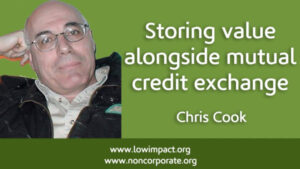 Storing value in a mutual credit world: Chris Cook
Storing value in a mutual credit world: Chris Cook
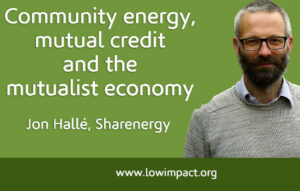 Community energy, mutual credit and the mutualist economy
Community energy, mutual credit and the mutualist economy
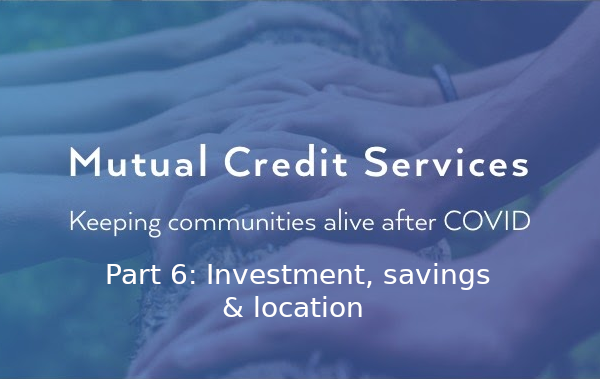 Mutual Credit Services – keeping communities alive after COVID: Investment, saving & location
Mutual Credit Services – keeping communities alive after COVID: Investment, saving & location
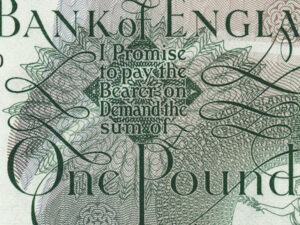 Low-impact money
Low-impact money
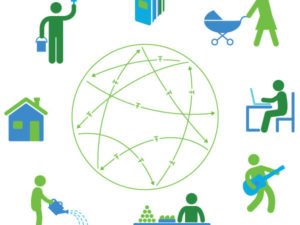 Mutual credit
Mutual credit
 Commons economy
Commons economy
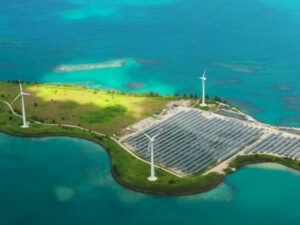 Use-credit obligations
Use-credit obligations


